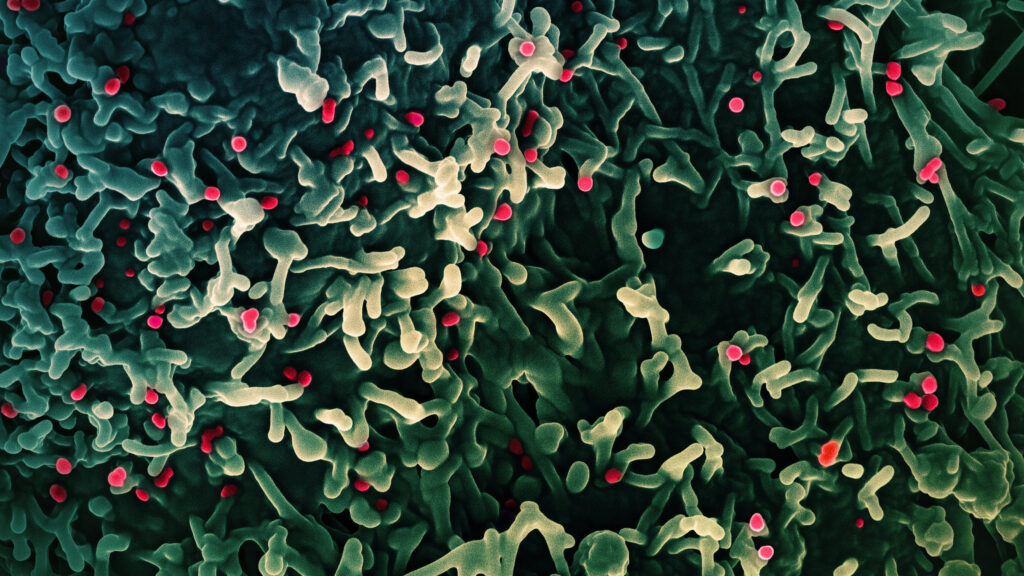In early 2022, I cared for one of the first patients with mpox in Massachusetts. As an infectious diseases physician, I remember the deep uncertainty I felt, and the fear in my patient’s eyes as a painful rash spread over their body. We were in uncharted territory — there were no proven treatments, and the number of cases was rapidly increasing. We decided to use tecovirimat (TPOXX), an antiviral developed for smallpox, to slow the disease’s progression. When patients began to recover, it felt like a breakthrough — a moment of hope in the midst of yet another epidemic.
Fast-forward to today, and we face a new challenge. Recently, the World Health Organization declared a public health emergency of international concern due to a rapidly expanding mpox outbreak in Central Africa. Soon after, cases were confirmed in Sweden and Thailand, signaling potential international spread.
advertisement
Today, we have mpox vaccines that will be vital to combating the outbreak. Yet these vaccines sit on shelves in wealthy nations far from where they’re most urgently needed.
Having cared for early cases during the 2022 outbreak, I’ve seen firsthand the devastation this disease can cause. To prevent this outbreak from becoming a pandemic, wealthy nations, led by the U.S., must take urgent action to address global mpox vaccine inequities.
With more than 17,000 cases and 500 deaths in 13 countries, concerns about global spread and more severe outcomes are growing. The current outbreak is driven by two lineages of mpox: Clade Ia, predominantly affecting children, and Clade Ib, a new lineage rapidly spreading through adult sexual networks. These new lineages appear more virulent and are affecting broader population groups than the Clade II lineage that caused the 2022–2023 global epidemic. Preliminary evidence suggests that TPOXX, while beneficial for some patients, may not be as effective against Clade 1 mpox as hoped, underscoring the continued importance of prevention through vaccination.
advertisement
During the Clade II epidemic, wealthy nations effectively used the MVA-BN vaccine, produced by Bavarian Nordic. Now the WHO has urged increased production and requested donations from countries with stockpiles, but progress has been slow. The U.S. recently pledged 50,000 vaccines — a fraction of the 7 million it aimed to stockpile by mid-2023. The European Commission and Bavarian Nordic pledged over 215,000 doses. These donations fall far short of the 10 million doses Africa CDC estimates are necessary.
Production scale-up has also been disappointing. Bavarian Nordic informed Africa CDC it could supply up to 2 million doses in 2024 and manufacture up to 10 million doses by the end of 2025 if there are firm purchase requests. These efforts are limited by the vaccine’s prohibitive price: approximately $200 per course. That steep cost is why mpox vaccines never reached Africa after the 2022 outbreak, and it remains unclear how vaccine procurement will be funded now.
But producing and procuring vaccines is only the first step. Funds are needed to deploy them in the challenging settings where mpox is spreading. Jean Kaseya, director-general of Africa CDC, estimates an effective continent-wide response will require $4 billion. The U.S. has announced just $55 million in emergency health assistance for mpox response in the region.
To prevent this outbreak from becoming a pandemic and to foster global health equity, the United States must lead in addressing this crisis.
Here’s how: The U.S. should commit to sharing at least 50% of its mpox vaccine stockpile with affected African nations within six months. This should be straightforward, as the U.S. recently confirmed a $156.8 million contract with Bavarian Nordic, ensuring our stockpiles are replenished as we share. Additionally, the federal government should allocate $200 million in the next federal budget to expedite vaccine procurement and delivery as well as mpox response initiatives in endemic regions. This supports the preparedness and response plan the World Health Organization unveiled Monday, which requests $135 million for a global response including efforts to advance equitable access to vaccines and diagnostics over the upcoming six months. The U.S. must also work closely with the WHO, governments, and pharmaceutical companies to expedite further donations, secure funding commitments, overcome regulatory hurdles, and facilitate vaccine production transfer to affected regions.
advertisement
The gap between what’s needed and what’s available highlights persistent global vaccine inequities, showing how little we’ve learned from the Covid-19 pandemic. Without adequate resources, the mpox response will remain inadequate, posing a continued threat beyond Africa. The interconnected nature of global health means neglecting health equity anywhere threatens health security everywhere.
Vaccines are just one component of a comprehensive package including diagnostics, therapeutics, and effective deployment systems necessary to fight the outbreak. Others might contend that addressing the vaccine shortage takes time. However, initiatives like Operation Warp Speed during Covid-19 show we can meet vaccine needs swiftly if prioritized.
Enhancing global vaccine equity is not just a moral imperative but a strategic investment in our long-term health security. I’ll never forget the hope we all felt once Covid vaccines were distributed in the U.S. and case numbers began to fall. That same hope can be realized globally if we act decisively now. It’s time to bring mpox vaccines to the people of Africa, who have for decades been at risk of this disease. Doing so would slow this outbreak, save lives, and benefit the people of the world. The choice is clear: Act now on vaccine equity or risk the consequences of a global mpox pandemic.
Wilfredo R. Matias, M.D., MPH, is an infectious diseases doctor at Harvard Medical School, a Paul and Daisy Soros fellow, and a public voices fellow of the OpEd Project. His work focuses on responding to epidemic infectious diseases and advancing global health equity.

